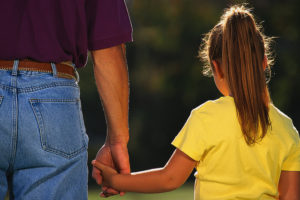
Illustration: MLARGE (clker.com)
If you ask my children what they think their parents’ most important job is, they’ll say “to keep us safe and healthy.” We use that phrase to explain everything from why our daughter can’t cross the street alone to why our son needs to go to sleep at night. While our children have been known to roll their eyes when they hear it, this all-purpose phrase is one that explains a lot of our decisions as parents. We encourage our au pairs to use it as well.
When my son was worried about his upcoming swimming lesson, I heard our au pair tell him that he was going to be safe because that was her job. Immediately, he smiled and relaxed a bit, and while he was still worried, he knew that he was safe because his au pair was there to keep him out of harm’s way.
Summer can be a wonderful time of year full of adventure and fun, but it can also be a time when routines are unsettled and rules are relaxed. I encourage you to think about ways that you can keep your children safe and healthy. The American Academy of Pediatrics’ Healthy Children website has many excellent articles on how you can help your family have a wonderful and healthy summer. Below are some highlights with links to the full articles.
Summer Safety*
- Keep infants 6 months or younger out of direct sun.
- Cover up with protective clothing and hat and dress in cool layers. Wear protective sunglasses.
- Play outdoors in the early morning and limit your exposure to sun between 10 am and 4 pm.
- Use a broad-spectrum sunscreen and apply it often.
Heat Safety*
- Reduce the intensity of outdoor activities during times of high heat & humidity.
- In Washington, DC smog can also cause days when the air is unsafe for young children to be outdoors. You can check the daily index here.
- Children and adults should be allowed to drink water liberally and freely. When outdoors take a break for water every 20 minutes.
- NEVER leave a child in a car. Heatstroke and death can occur quickly. Always check the backseat to make sure all children are out of the car. Leave your purse or wallet on the back seat when you are driving to remind you to check when you arrive at your destination.
Insects*
Summertime brings an onslaught of bugs- some of which can cause diseases like West Nile Virus, Lyme Disease, and Rocky Mountain Spotted Fever. Stay up-to-date on your region and how to prevent these diseases spread by insects.
Prepare a summer first-aid kit for bug bites and more:
- Be prepared for allergic reactions from bug bites. Benadryl is probably the most important over-the-counter medication to have in your first aid kit to treat insect bites, hives, and other allergic reactions.
- Hydrocortisone ointment can help the itches that come from bites.
- Use bug spray containing DEET or picaridin.
- Review swimming rules with your children.
- Always make sure an adult who is able to swim is watching children when they are in the water.
- Take steps to prevent drowning*.
*These articles have been updated by the American Academy of Pediatrics’ Healthy Children website for 2017.



 Each month, Au Pair in America provides a calendar full of fun activities and helpful information for everyone in the family.
Each month, Au Pair in America provides a calendar full of fun activities and helpful information for everyone in the family.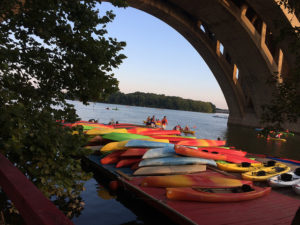
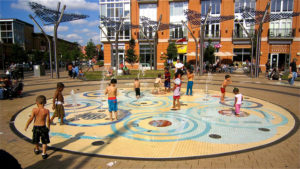
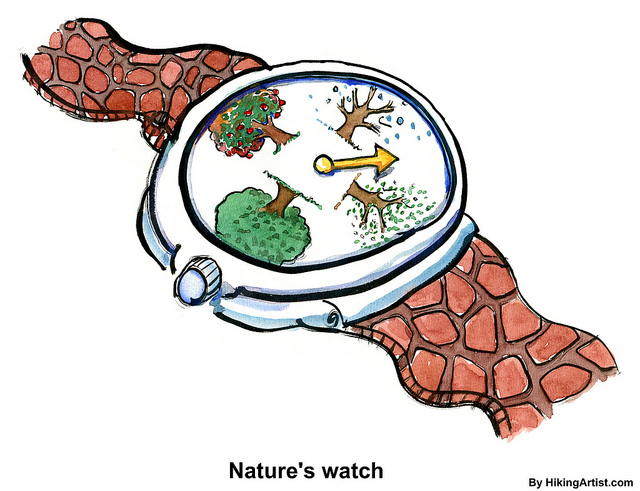
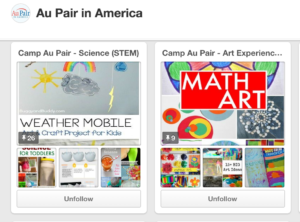 Looking for ways to entertain your kiddos this summer? Au Pair in America’s
Looking for ways to entertain your kiddos this summer? Au Pair in America’s  Dehydration means that the body lacks the necessary amount of fluid. Infants and small children are more likely to become dehydrated than older children or adults, because they can lose relatively more fluid quickly.
Dehydration means that the body lacks the necessary amount of fluid. Infants and small children are more likely to become dehydrated than older children or adults, because they can lose relatively more fluid quickly.